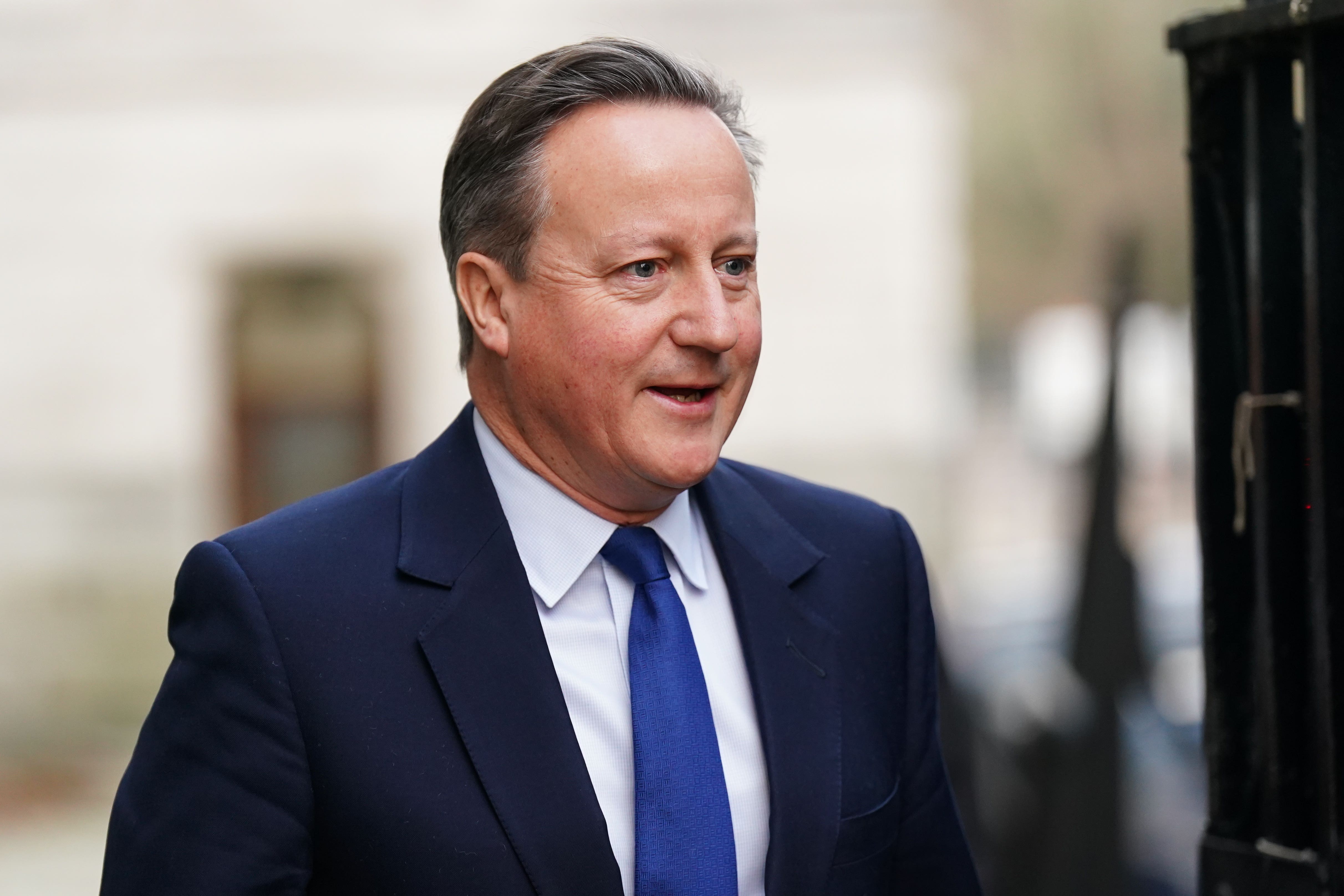Cameron aims to stop Middle East conflict from ‘spilling over’ during new visit
Starting in Oman, the Tory peer will call for stability over Houthi attacks in the Red Sea and an immediate pause in the Israel-Hamas war.

Your support helps us to tell the story
From reproductive rights to climate change to Big Tech, The Independent is on the ground when the story is developing. Whether it's investigating the financials of Elon Musk's pro-Trump PAC or producing our latest documentary, 'The A Word', which shines a light on the American women fighting for reproductive rights, we know how important it is to parse out the facts from the messaging.
At such a critical moment in US history, we need reporters on the ground. Your donation allows us to keep sending journalists to speak to both sides of the story.
The Independent is trusted by Americans across the entire political spectrum. And unlike many other quality news outlets, we choose not to lock Americans out of our reporting and analysis with paywalls. We believe quality journalism should be available to everyone, paid for by those who can afford it.
Your support makes all the difference.Lord Cameron will pledge that Britain will “do everything” it can to prevent the Israel-Hamas war from “spilling over borders” during a return visit to the Middle East.
The Cabinet minister will this week make his fourth visit to the region since being appointed Foreign Secretary in November as he presses for a de-escalation of tensions.
Starting in Oman, the senior Conservative peer is expected to call for stability amid Houthi attacks in the Red Sea and an immediate pause in the conflict in Gaza as he looks to work diplomatically to stop the Israel-Hamas war from escalating into a wider conflict.
We cannot ignore the risk that the conflict in Gaza spreads, spilling over borders into other countries in the region
An attack by Iran-backed militia in Jordan over the weekend that killed three US troops and left dozens injured has stoked fresh fears of a western confrontation with Tehran.
The UK, the US and other allies have looked to police the Red Sea after the Houthis, another Iran-backed rebel group, based in Yemen, began targeting commercial shipping on the vital global trade route in recent months.
The US and the UK launched a second round of joint strikes against the rebels but it appears to have done little to deter the Houthi missiles.
A British-linked oil tanker went up in flames after a strike claimed by the Yemen-based group on Friday, before a further attack on HMS Diamond, a Royal Navy destroyer stationed in the Red Sea, was repelled.
Speaking before his return to the Middle East, Lord Cameron said: “The Houthis continue to attack ships in the Red Sea, risking lives, delaying vital aid getting to the Yemeni people and disrupting global trade.
“And we cannot ignore the risk that the conflict in Gaza spreads, spilling over borders into other countries in the region.
“We will do everything we can to make sure that does not happen – escalation and instability is in nobody’s interests.
“In Gaza, there is an urgent need for an immediate pause to allow aid in and hostages out.
“We are determined to do all we can to press for a sustainable ceasefire, and are stepping up our engagement with countries in the region to make sure that happens.”
The Foreign Office said the Red Sea crisis is likely to form a “major focus” of the former prime minister’s discussions during the trip.
Officials described the visit as an opportunity to advance the Foreign Secretary’s proposal for a so-called contact group — which he wants to see formed between the UK, the US, key European Union states, Turkey and Gulf and Arab countries — that can use a potential future pause in fighting between Israel and Hamas to “build momentum towards a lasting solution”.
In Oman, the Foreign Secretary is expected to meet his Omani counterpart Sayyid Badr Albusaidi to discuss de-escalating rising tensions across the region.